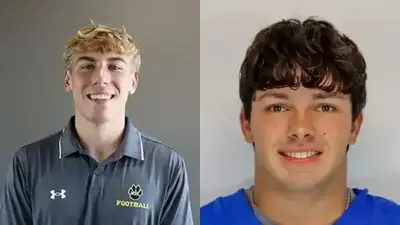Health is Wealth | Unsplash by Marcelo Leal
Health is Wealth | Unsplash by Marcelo Leal
The political and legal scrutiny of some Big Tech and social media platforms is running high at the moment.
TikTok CEO Shou Chew faced grilling from lawmakers Thursday when he appeared before the House Energy and Commerce Committee. His testimony took place as some lawmakers have renewed calls for TikTok to be banned in the US, citing national security concerns over its ties to China through its parent company, ByteDance. They have also questioned TikTok's data collection practices and its impact on children.
Meanwhile, two cases before the US Supreme Court could potentially change the face of the internet. They involve Section 230, a nearly 30-year-old federal law that provides a legal shield to tech and social media companies against lawsuits over users' content on their platforms.
While these events play out on the national stage, the tug-of-war over content consumption is also taking place on a smaller scale in homes and schools across the country, affecting the lives and mental health of some users, especially young people.
College student Emma Lembke is taking action against what she sees as the harmful effects of social media on her generation. By her mid-teens, the founder of the Log Off Movement had had enough of social media.
After years of "scrolling mindlessly" on different apps for five to six hours a day, a switch in her brain flipped.
"I remember I heard the buzzer, my phone, probably Snapchat notification, something trying to pull me in, and I instantly had that Pavlovian response to grab for it," Lembke recalled. "And it was in that response -- in the millisecond between that buzz and my grab -- that I finally hit my breaking point. And I asked myself, how am I allowing these apps to have so much control over me?"
It wasn't always that way.
Lembke was last among her friends to be allowed on social media. She thought that world must be "mystical and magical and golden," given her friends' newfound and intense focus.
"... I remember seeing all of my friends' attention get pulled away from me ... having their eyes looking up at me, having conversations and (then) getting pulled straight down," she said. "And it felt like a drop. ... Each one would spend more and more time sucked into their phones and screens rather than talking with me in person."
Lembke, now 20 and a college sophomore at Washington University in St. Louis, said she was instantly drawn in.
"I first got my social media accounts at the age of 12, in the sixth grade, starting with Instagram and making my way over the years to other apps and platforms like Snapchat," she said. "But as I, a 12-year-old girl, began to spend more time on these apps, my mental and physical health really suffered."
What she saw happening on her accounts began to shape her self-esteem.
"I was scrolling, and through scrolling, constantly quantifying my worth through likes and comments and followers," she said. "And that quantification really deepened my social anxiety and deepened my depressive spirals."
The opaque algorithms of these platforms also pushed her down a dark road of unrealistic body standards, she said, leading her into harmful eating habits.
"I think the most nefarious aspect to it all ... is that it's not very overt. It's not going to say, 'Get an eating disorder, feel bad about your body, go home and, like, don't eat anything for a day.' It will never be that blunt," she said. "What it will do is it will slowly ease you into content that repeatedly reinforces those standards and those practices without overtly saying it."
Autoplay on these apps also kept her hooked.
"It's a very slippery slope," she said, "and one that is facilitated via addictive features on these platforms."
Lembke knew she needed to get out. But she didn't want to just leave social media; she wanted to do something so that other teens wouldn't have to go through what she did.
"I remember especially feeling really hopeless because as a young person, what are you up against? An entire societal ... norm that says, 'Get on social media.' "
Today, Lembke is urging that Big Tech and social media companies be held accountable, testifying before the Senate Judiciary Committee in February about the effect of these platforms on her life.
You can hear more about Lembke and her crusade on behalf of the mental health and privacy of young people in this week's Chasing Life podcast. Plus, CNN technology reporter Brian Fung unpacks Section 230 and what's at stake with any upcoming Supreme Court ruling.
The-CNN-Wire™ & © 2023 Cable News Network, Inc., a Warner Bros. Discovery Company. All rights reserved.
Original source can be found here.


 Alerts Sign-up
Alerts Sign-up